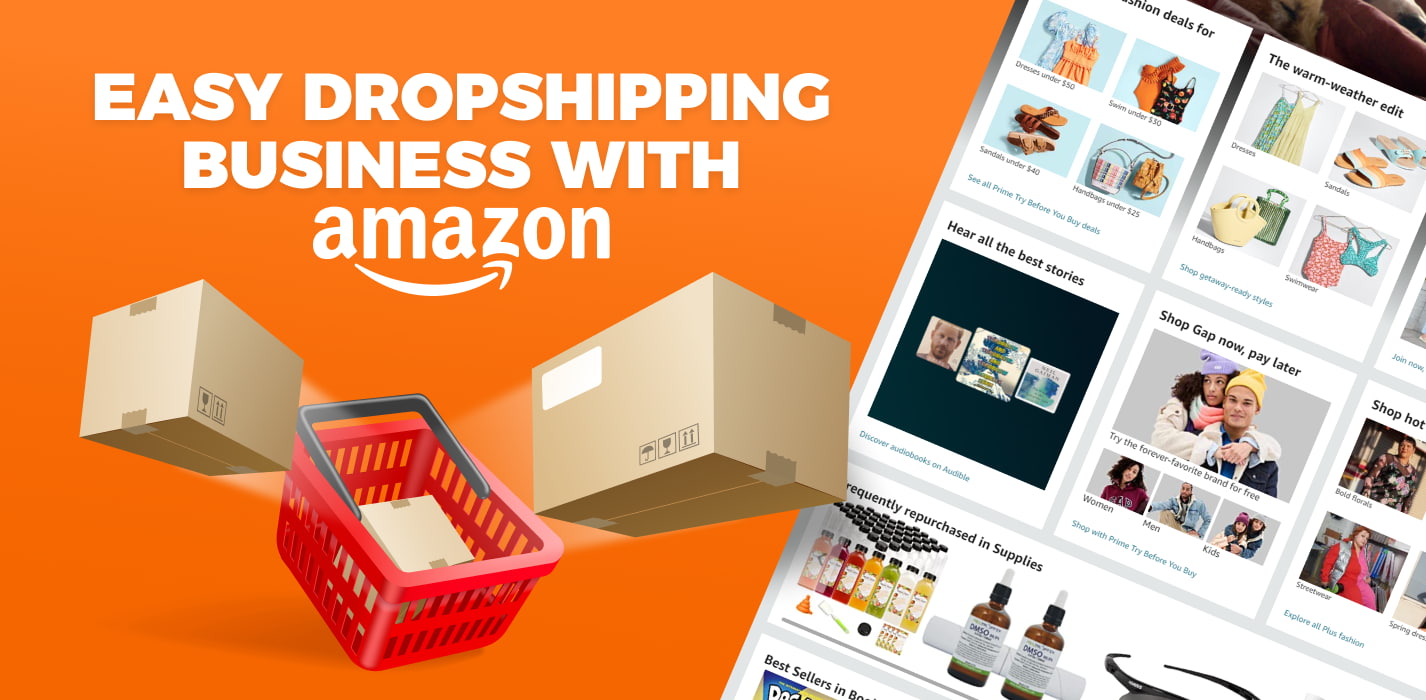The eccommerce industry has seen tremendous growth over the past few years. Businesses around the globe embrace digital solutions to stay competitive and meet evolving customer needs. Among the most transformative technologies to emerge in this domain is artificial intelligence (AI). More specifically, the OpenAI-developed language model, ChatGPT. The logical question arises – what are the ways to use AI in the ecommerce landscape?
In this article, we will delve into the potential of AI and ChatGPT to revolutionize ecommerce. We’ll explore the wide-ranging applications and benefits they offer to businesses in the digital age.
The AI Revolution in Online Retail
AI has become an integral part of the ecommerce ecosystem. Offering innovative solutions for enhancing customer experiences, optimizing business operations, and maximizing revenue.
AI is steadily transforming the way businesses operate online. From personalizing product recommendations and improving search functionalities to streamlining supply chain management and automating marketing campaigns.
As a result, companies that effectively harness AI’s potential can gain a competitive edge in the rapidly evolving ecommerce landscape.
ChatGPT, a powerful language model developed by OpenAI, has emerged as a game-changer for various industries, including ecommerce. By leveraging natural language processing and understanding capabilities, ChatGPT can generate human-like text. This makes it an invaluable tool for businesses seeking to enhance customer interactions, automate processes, and gain valuable insights.
Want to boost your business with a ChatGPT-powered business? Find out more right now!
Some of the most promising applications of ChatGPT in ecommerce include:
- Personalized customer experiences through AI-driven product recommendations and content generation
- Efficient customer support and engagement via AI-powered chatbots and virtual assistants
- Inventory management and supply chain optimization through data-driven insights and automation
- Enhancing marketing and sales strategies with content generation, SEO optimization, and social media engagement
- Fraud detection and security through intelligent risk assessment and prevention
Thus, let’s explore how integrating ChatGPT into ecommerce can drive growth, improve customer satisfaction, and ensure long-term success.
The Keys To Successful Ways To Use AI Implementations
-
Prioritize User Experience
Businesses that have successfully integrated ChatGPT into their operations often prioritize delivering an exceptional user experience.
Focusing on customer needs and preferences companies have been able to create more engaging and personalized interactions. As a result driving customer loyalty and repeat business.
-
Seamless Integration
Ensuring that ChatGPT-powered solutions are seamlessly integrated into existing workflows and systems is crucial for success.
Companies that have achieved the best results have carefully planned and executed the implementation process. This has resulted in minimal disruption and maximum benefit.
-
Continuous Improvement
Successful ecommerce businesses understand that AI-powered solutions like ChatGPT are not a one-time investment but rather a tool.
By regularly analyzing performance data, gathering customer feedback, and updating algorithms, these companies have been able to maximize the value of ChatGPT and stay ahead of the competition.
Want to find out ways to use AI and ChatGPT in particular to make money and enhance your business performance? A ChatGPT-powered business is just a click away!
The Future of ChatGPT in Ecommerce: Opportunities and Challenges
As AI technology continues to evolve, ways to use AI in ecommerce will only expand. Some future developments may include:
-
Enhanced Voice Shopping Experiences
As voice assistants become more sophisticated, ChatGPT could play an even more prominent role in facilitating voice-based shopping experiences, helping customers find and purchase products using natural language commands
-
Hyper-Personalization
With further advancements in AI, ChatGPT may enable even more granular personalization, allowing businesses to tailor experiences not only based on individual preferences but also on real-time factors such as mood, location, or time of day.
This level of personalization could lead to even higher conversion rates and customer satisfaction.
-
Ethical Considerations and Data Privacy
As ChatGPT and AI become more deeply integrated into ecommerce, businesses will need to navigate the ethical and privacy concerns that arise from the collection and use of customer data.
Ensuring transparency, adhering to data protection regulations, and maintaining customer trust will be essential for long-term success.
-
Collaboration with Human Expertise
As AI-powered tools like ChatGPT become more capable, the role of human expertise in ecommerce will likely shift. Rather than replacing human workers, AI can be used to augment their skills and allow them to focus on higher-value tasks, fostering a collaborative and efficient work environment.
By learning from the successes and challenges of early adopters, businesses looking to harness the power of ChatGPT in ecommerce can strategically position themselves for long-term growth and success. As AI continues to reshape the ecommerce landscape, staying at the forefront of these technological advancements will be critical for companies seeking to thrive in an increasingly competitive market. By leveraging ChatGPT’s capabilities, online retailers can create more personalized, efficient, and secure shopping experiences for their customers, ultimately driving revenue and fostering lasting brand loyalty.
Marketing and Sales Strategies with ChatGPT
Effectively reaching and engaging customers is a top priority for ecommerce businesses, and ChatGPT offers a wealth of opportunities for enhancing marketing and sales efforts.
By leveraging AI-powered language generation, online retailers can optimize their promotional campaigns, create compelling content, and interact with customers across various channels in a more personalized and efficient manner.
-
AI-Driven Email Marketing Campaigns
ChatGPT can help businesses create highly targeted email marketing campaigns that resonate with individual customers. By analyzing user data and preferences, AI can generate personalized subject lines, promotional offers, and product suggestions that increase open rates, click-through rates, and conversions. Furthermore, ChatGPT can be used to automate the process of A/B testing, allowing businesses to quickly identify and optimize the most effective marketing strategies.
-
Content Generation and SEO Optimization Using ChatGPT
High-quality, engaging content is essential for driving organic traffic and converting website visitors into customers. ChatGPT can be utilized to create a wide range of content, including product descriptions, blog articles, and social media posts, ensuring that your ecommerce site remains fresh and relevant. Moreover, by incorporating SEO best practices and strategically targeting specific keywords, ChatGPT-generated content can help improve your website’s search engine rankings and attract more potential customers.
-
Social Media Engagement and Influencer Collaborations
In today’s digital world, having a strong social media presence is crucial for ecommerce success. ChatGPT can help businesses maintain an active and engaging presence across various social media platforms by generating contextually relevant content, responding to customer comments, and even identifying trending topics and hashtags. Additionally, ChatGPT can be used to identify and analyze potential influencer partnerships, helping businesses collaborate with the right influencers to reach their target audience and boost brand visibility.
Ecommerce businesses can elevate their marketing and sales efforts, resulting in increased brand awareness, customer engagement, and ultimately, higher revenue. The ability to create personalized content, automate processes, and improve targeting allows online retailers to stay ahead of the competition and effectively reach their desired audience in an increasingly crowded digital marketplace.
As AI technology continues to advance, the potential of ChatGPT and similar tools to revolutionize marketing and sales in ecommerce will only grow. This offers businesses new opportunities to connect with customers and drive success.
Personalizing the Customer Experience with ChatGPT
In the competitive world of ecommerce, delivering personalized customer experiences is essential for businesses looking to stand out and meet the ever-evolving needs and preferences of their audience. By leveraging the capabilities of ChatGPT, online retailers can create bespoke experiences that resonate with their customers, resulting in increased engagement, conversions, and long-term loyalty.
-
AI-Driven Product Recommendations
One of the most impactful applications of ChatGPT in ecommerce is the generation of personalized product recommendations.
By analyzing a customer’s browsing and purchase history, as well as other relevant data, ChatGPT can intelligently suggest items that are likely to appeal to individual shoppers. These recommendations can be seamlessly integrated into the customer’s browsing experience, enhancing their overall journey and increasing the likelihood of conversion.
-
Enhancing User Experience Through Personalized Content
ChatGPT can be utilized to generate personalized content for each visitor. For example, targeted promotional messages, customized product descriptions, or curated blog articles.
This tailored content not only helps capture the attention of users but also provides a more relevant and engaging experience that encourages longer site visits and repeat business.
-
Creating Seamless Omnichannel Experiences
Today’s customers often interact with brands across multiple channels, including websites, mobile apps, email, and social media.
Analyzing customer data and generating personalized content and recommendations accordingly, ChatGPT can help businesses create a cohesive and consistent experience.
This results in a more streamlined and satisfying customer journey, boosting brand loyalty and increasing the chances of repeat purchases.
-
Improving Customer Support with AI-powered Chatbots
ChatGPT can be integrated into chatbot systems, enabling businesses to provide responsive and personalized customer support. By understanding user inquiries and delivering contextually relevant responses, AI-powered chatbots can resolve common issues more efficiently than traditional support methods, freeing up human agents for more complex tasks. This improved level of customer service not only enhances the overall user experience but also contributes to increased customer satisfaction and loyalty.
So, by harnessing the power of ChatGPT to deliver personalized experiences, ecommerce businesses can effectively cater to the unique needs and preferences of their customers, fostering stronger relationships and driving long-term growth. As consumer demand for tailored experiences continues to grow, adopting AI-powered personalization solutions like ChatGPT will become increasingly crucial for online retailers seeking to maintain a competitive edge in the market.
Final Thoughts : Embracing ChatGPT and AI for Ecommerce Success
As the ecommerce landscape continues to evolve and become more competitive, businesses must adapt and embrace innovative technologies to thrive. AI, and ChatGPT in particular, offer a wealth of opportunities to transform and enhance various aspects of ecommerce, from personalizing customer experiences and optimizing marketing strategies to streamlining operations and improving customer support.
Thus, by integrating ChatGPT and AI solutions into their business models, ecommerce companies can unlock new levels of efficiency, personalization, and customer satisfaction. These cutting-edge tools can help online retailers stay ahead of the competition, adapt to changing consumer expectations, and capitalize on emerging market trends.
However, successfully harnessing the power of ChatGPT and AI also requires a strategic approach, and a commitment to continuous improvement. Businesses must ensure that AI-driven solutions are seamlessly integrated into existing processes. This means maintaining customer trust and foster a collaborative environment that balances human expertise with AI capabilities.
As it stands, the future of ecommerce lies in the intelligent ways to use AI and tools like ChatGPT. By embracing these technologies and adapting to an increasingly digital world, businesses can unlock new opportunities for growth and establish themselves as leaders in the competitive ecommerce landscape.




![How To Launch A Business In A Couple Of Clicks? No Big Deal! [Complete Guide]](https://sellvia.com/wp-content/uploads/2023/03/cover_get-started-on-amazon-1.png)




